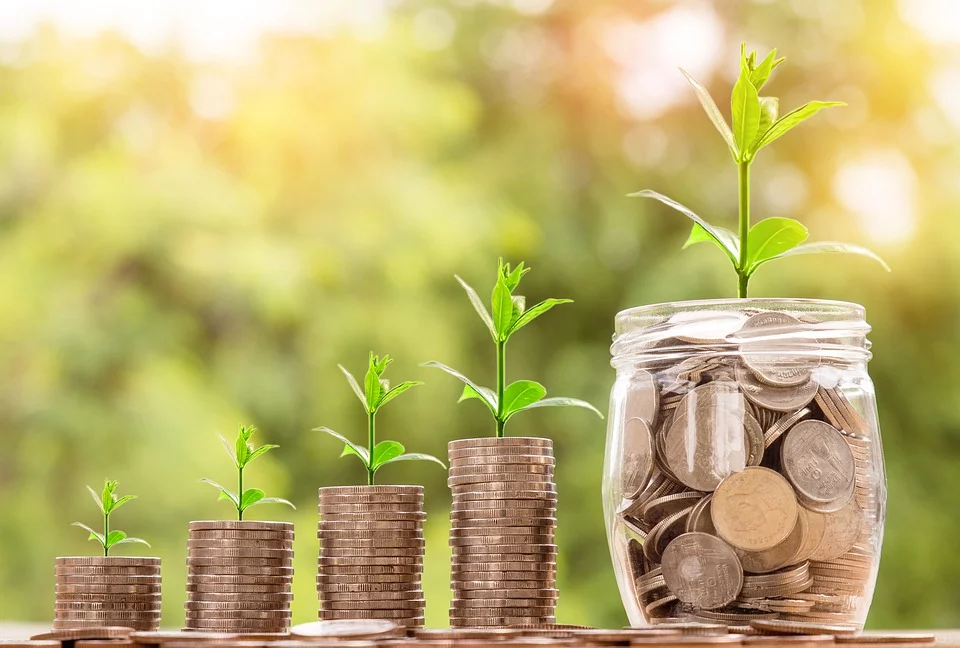It doesn’t matter your income, saving money is something everyone should do as a step toward the financial future of their dreams. Luckily, saving money isn’t a skill you have to be born with. You can acquire all of the tools you need to save money and grow your wealth, but the first step is to acknowledge you aren’t great at saving money in the first place.

Here are a few signs you are bad at saving money, and how to fix these problems on your own.
You have no idea how much you spend
Do you actually know how much you are spending each month? If you are someone who is better at saving money, than you probably do, but if not, you won’t even be able to understand if you are saving as much money as you would like.
Tracking your spending doesn’t have to be difficult. You can use one of the budgeting or savings apps available, or track your spending manually in Excel or even a journal. It doesn’t matter how you track your spending, what matters is you understand how much you spend.
You tell yourself you’ll save more when you start making more
Everyone has the delusion that when they make more money they will save more money. Unfortunately, this rarely plays out as planned. Take lottery winners as an example. Studies have shown that a vast majority of lottery winners lose their massive amounts of money just as quickly as they earned it because even though they now have more money, they never learned how to save.
The sooner you start saving the better. This will develop good habits of putting money away in the bank or other investments that will pay off in the future. Even if you are just saving change here and there, you are developing the skills needed to be good at saving money, and when you do start to make more money, your savings will grow exponentially with very little effort.
Your vices eat away at your savings
Maybe you like having a glass of wine with dinner or taking your cigarette breaks throughout the day at work. The only problem is that these vices might not only be negatively effecting your health, they could be hurting your wallet as well.

The European Union found that European households spent 1.6% of their total consumption on alcohol in 2016, with Czechs at the top of the list, spending an astonishing 7.9% of their expenditures on alcohol. It is already expensive to have a habit such as smoking, but it could get even more expensive in the future as regulatory bodies mull expanding taxes to disincentivize citizens from partaking in such activities.
Obviously the easiest way to not let such vices eat away at your savings is to refrain from them altogether. However, if you are going to partake in a glass of wine or cigarettes, first understand what it is costing you. Let’s say you have two drinks three times per week at an average of €10 per drink. This means you are spending €60 per week, or €3,120 per year on alcohol. If you were to simply cut out one of those nights of drinking you would save €1,040 per year which could go directly into your savings.
You like buying for the sake of it
In our modern day and age it is easier than ever to make purchases with the click of a mouse or swipe of a finger. E-commerce sites like Amazon have made buying new items less of a need and more of a hobby. Maybe you are one of those people who overspend on online purchases and enjoy shopping a little too much, or, you find yourself buying new clothes even though your closet is already full. Whatever the case, it is easy to see how easy it is to enjoy spending money a little too much.
If you are one of these people, don’t worry. By putting some thought into your purchasing you can create better habits for yourself. The first step is to refrain from any and all impulse purchases. You know, the purchases you make when you go to the store for one item and leave with five others. Always create a list of the things you need, and don’t stray from your list, no matter how tempting. Another good idea is before you make a purchase to really think about why you need to make that purchase. Do you really need that extra pair of jeans or the newest smartphone? Maybe your current phone really is good enough, and you do have plenty of clothing in your closet.
A little thoughtfulness will go a long way, resulting in more money in your pocket for the important things in life.
You don’t have an emergency fund
Would you be financially prepared if your car breaks down tomorrow? Or if your house springs a leak and needs to be repaired? In life, all sorts of unexpected things happen, which means you need to be prepared for the worst. Nothing is worse than getting caught in an unexpected situation and realizing you don’t have enough savings to cover the cost.

To prepare for the unexpected, start saving money and put it into an emergency fund which is only to be used in the case of an emergency. If you put just a small percentage of your income each month into an emergency fund you will be better prepared for anything that life may throw your way. As a general rule, it is a good idea to have 3-6 months of living expenses saved away just in case you are unable to maintain your income or you are laid-off from your job without notice.
You don’t have a savings plan
Do you know how much you actually want to save per month? This is a question which should have a clear, defined answer. Some people let the month go by without actually being thoughtful about their savings, but you don’t have to be one of those people. Think about your financial goals and determine how much you want to save each month. There are many factors you should consider when thinking about how much to save, including your age, occupation, and marital status, among others.
Once you have an idea of how much you want to save, a simple savings plan, one that is realistic and easily attainable with some effort. This plan can be used to motivate you in times of struggle, or when you are deciding between buying a new pair of jeans or saving the extra money.
You haven’t started investing
There is one secret that the super-wealthy don’t want you to know: Those with the most wealth in the world make the majority of their earnings not from their day-jobs, but from investing. Studies have shown that the ultra-wealthy make more of their money via capital gains and dividends from investments than from their salaries. Clearly, if you want to be wealthy you need to start investing.
If you have all of your expenses taken care of and are financially prepared with an emergency fund, the rest of your money should be working for you in the form of investments. If you are afraid, start small. Study different investment platforms, their risks and rewards, and invest small amounts of money here and there. And always remember to diversify!
Investing is as much about the mentality as it is the actual act itself. Once you get used to investing your savings and watching it grow, you will create a positive reinforcement loop to incentivize even more savings, and investing, in the future.
Saving is a mindset
Becoming a good saver is just as much about learning the tools as it is a mindset. Once you begin to save regularly you will see how easy it is to get into the mindset of saving and letting your money work for you. If you can first identify the areas in which you need to improve you can then work to become a good saver, and in turn, create more wealth for your future.
*As with any investment, your capital is at risk and the investments are not guaranteed. The yield is up to 6.75% p.a. Before deciding to invest, please review our risk statement or consult with a financial advisor if necessary.


